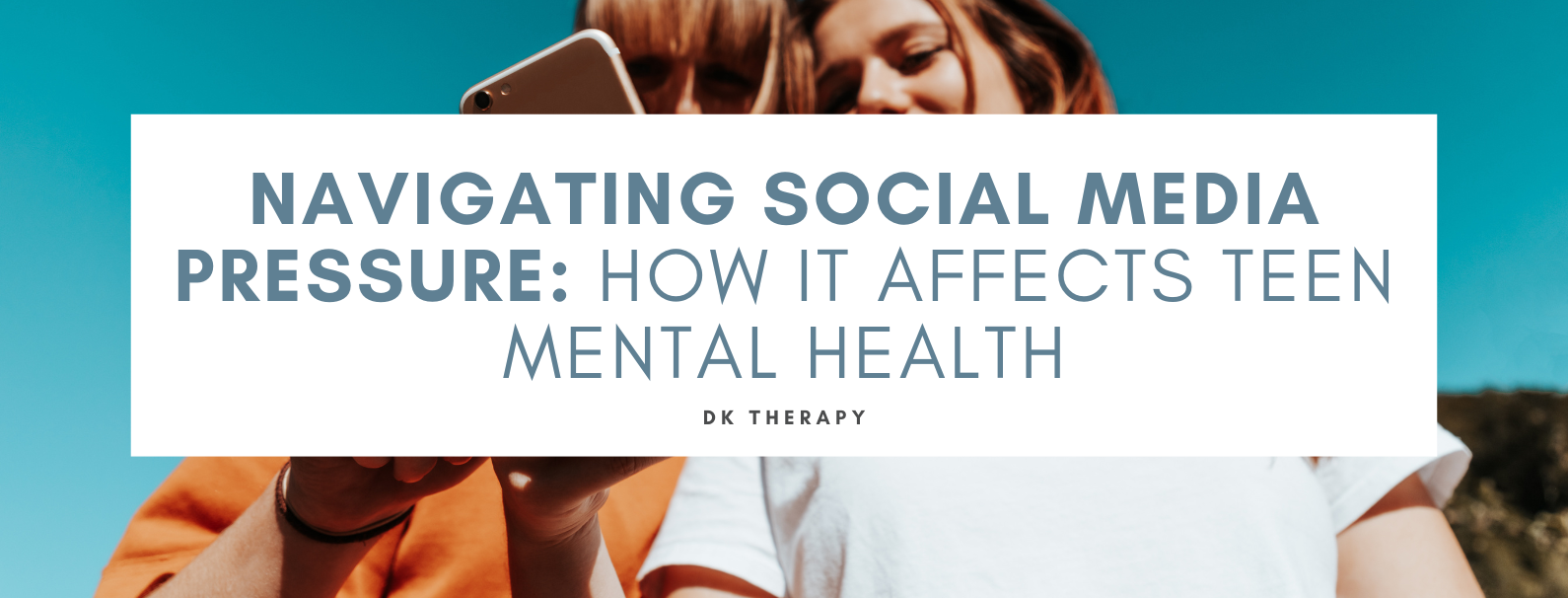
Social media has become a regular part of our lives, particularly among younger people. Platforms like Instagram and TikTok not only serve as a way for people to express themselves, but they also shape our social interactions and relationships. Though social media offers opportunities to connect and share creative content, they also come with pressures that can impact mental health.
 The Illusion of Perfection
The Illusion of Perfection
More often than not, social media presents people with an unrealistic view of human life. Teenagers are constantly bombarded with images of seemingly perfect people living lavish lifestyles. Not surprisingly, this curated content leads to feelings of inadequacy and low self-esteem among users.
The pressure to fit into or identify with these manufactured details can drive people, both teens and adults, to engage in unhealthy behaviors. Examples include extreme dieting, consuming unregulated dietary aids, or engaging in excessive exercise. In addition, the desire for validation through likes and comments leads to a toxic cycle where one’s self-worth starts depending on these metrics.
The Fear of Missing Out
Social media amplifies the fear of missing out, also called FOMO. As teens scroll through their feeds, they see friends hanging out, attending parties, or embarking on adventures without them. This can bring about feelings of loneliness, which can worsen existing mental health issues. The constant awareness of what others are doing creates an overwhelming sense of anxiety and social pressure.
Cyberbullying and Negative Interactions
The anonymity of social media can sometimes embolden people to engage in cruel behaviors, including cyberbullying. Unlike traditional bullying, which may occur in specific environments, cyberbullying can invade a teen’s home life. Victims of cyberbullying often experience anxiety, depression, and isolation.
The emotional toll of online harassment can be severe. Teens may withdraw from social interactions, struggle with academic performance, and in extreme cases, may contemplate self-harm.
The Role of Parental Guidance
Given the impact social media can have on mental health, parents and caregivers need to have open conversations with their teens about their online experiences. Encourage them to discuss the content they consume and the feelings it inspires. Don’t interrogate or be accusatory, though, even if you don’t like what you hear. Your genuine concern and support can help and your teens establish boundaries around screen time.
Promoting Healthy Social Media Habits
As teens continue to engage with social media, promoting healthy online habits is vital. Encouraging them to follow accounts that promote positivity and authenticity can help counteract the pressure to conform to unrealistic standards.
If you’re a young person, be mindful of how the content you consume makes you feel. If you’re not uplifted by what you look at, consider following positive, authentic accounts instead.
Remember that so much of what we see online is manufactured in some way. That influencer with the perfect skin likely has expensive products, cosmetic procedures, flawless makeup, and camera filters to achieve the look they’re displaying. Expecting yourself to live up to that result with none of the tools at your disposal is unrealistic, and ultimately, will harm your sense of well-being the longer you dwell on it.
It’s easy to get caught up in the competitiveness of social media, but at the end of the day, it can be very freeing to remind yourself that none of it matters. Likes mean very little in the grand scheme of things, and the ability to overcome the pressure of seeking constant validation can help you make way for healthier, more fulfilling activities.
Navigating social media pressure is a major challenge that many teens face today. While these platforms offer valuable opportunities for connection, they can also pose significant risks to mental health. Exercising caution and knowing when to step away from social media is essential when it comes to maintaining your well-being in our digital age.
If you’re struggling and you’d like to discover what therapy can do for you, reach out to us at DK Therapy.




